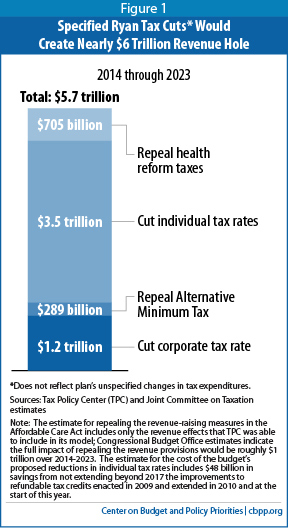How Did Romney Supposedly Win The Debate? By Being Himself, One of the Most Morally Corrupt Liars in Politics
Political reporters and pundits lean heavily on the horse race method of coverage, which has badly hurt Mitt Romney for most of the campaign. Last night it helped him. Romney was forceful and articulate and dodged his association with almost all the most unpopular aspects of his platform. But his success at doing so was built upon two demonstrable untruths.
The most important was taxes. Romney asserted, “I cannot reduce the burden paid by high-income Americans.” Let me explain how this is untrue even by his own campaign’s accounting.
Obama badly flubbed this topic by allowing Romney to change the baseline of the discussion. Romney is promising to extend all the Bush tax cuts and refuses to accept even slightly higher revenue as part of a deficit deal. On top of that, he is proposing a huge, regressive income tax rate cut that would reduce revenue by an additional $5 trillion, but promises to make up for it by closing tax deductions. Obama directed his fire almost entirely at the additional tax cut, leaving mostly untouched, until the end, Romney’s pledge to never bargain away any of the Bush tax cuts.
Obama’s case was sound. The Tax Policy Center has shown that the stated parameters of Romney’s plan don’t add up — even under favorable assumptions, there are not enough tax deductions for the rich to close to pay for the rate cuts. Romney has disputed this and cited a series of studies that, in various ways, change the parameters of the Tax Policy Center study. Some of these studies find that it could be theoretically possible that Romney could cut rates and, by closing loopholes, do so without losing revenue or raising taxes on the middle class — if you lower the bar on who is middle class from $250,000 to $100,000, or count the repeal of Obamacare to help pay for the tax cuts, or use really wildly optimistic growth assumptions.
None of these studies back up Romney’s claim that he won’t reduce taxes on the rich. They confirm that he will reduce taxes on the rich. They merely suggest that he could make up the revenue some other way than taxing the middle class or increasing the deficit — that the economic growth will help the tax cuts for the rich pay for themselves, or that some of the lost revenue can be made up for by cutting off subsidies for the uninsured. Romney flat-out misstated his position.
The other issue was health care. Romney has promised to protect health insurance for people with preexisting conditions who maintain continuous coverage. That caveat is vital, because that right has existed since 1996. It’s a very minor protection. Phrasing his promise this way has allowed Romney to make a promise that sounds like he would keep Obamacare’s protections for people with preexisting coverage without committing himself to anything at all (except, I suppose, keeping in place a 1996 law that didn’t do much).
At the debate last night, Romney didn’t phrase his promise in this misleading-but-true fashion. He promised, “preexisting conditions are covered under my plan.” That is not true. He dropped the legalistic mumbo-jumbo that renders his promise meaningless and promised something. But his plan doesn’t do that. And his adviser Eric Fehrnstrom, asked after the debate if Romney was really promising to cover people with preexisting conditions, admitted that he isn’t. (“With respect to pre-existing conditions, what Governor Romney has said is for those with continuous coverage, he would continue to make sure that they receive their coverage.”)
Romney won the debate in no small part because he adopted a policy of simply lying about his policies.
More here,
Debate fact check
10:20 — Romney left his heart in Zurich: Romney tells Obama, “The place you put your money is a pretty good indication of where your heart is.” The obvious rejoinder, ready-made for a DNC attack, is that Romney’s heart must be in the Cayman Island, Bermuda or Switzerland, where Romney has put his money.
10:10 — “The same f*cking bill”: Romney says his healthcare plan in Massachusetts is very different from Obamacare. The guy who designed both the plans calls them “the same f*cking bill.”
10:00 — Romney sees death panels: Romney comes dangerously close to invoking death panels, saying Obamacare has “a board that will tell people what kind of treatment they’re going to get.” He’s referring to IPAB, a board of doctors, hospital officials and government officials who try to find best practices to reduce the cost of Medicare (and only Medicare — no one else’s healthcare — which is already a government plan). IPAB does not decide on individual cases, is subject to congressional oversight and is legally prohibited from rationing care. In August, Paul Ryan told Florida seniors Obamacare has a “rationing board.”
9:45 — Obamacare still doesn’t cut Medicare: Romney revived one of the most repeated falsehoods of the campaign – that Obamacare cut over $700 billion from Medicare. It’s not true, and Paul Ryan’s budget included the same cuts; Ryan and almost every other Republican in the House voted for them. Obamacare did cut funds from Medicare, but from providers, not beneficiaries. The actuaries in charge of the program say the savings will actually extend the life of the program and experts say the cuts won’t affect benefits.
9:40 — NFIB fib: Romney uses as a cudgel against Obama’s tax plan a study from the National Federation of Independent Business. The NFIB sounds like an anodyne business group, but like the U.S. Chamber of Commerce it is actually a very partisan Republican group funded mostly by large corporations, not small businesses.
There is more at the link. Conservatives and the conservative movement is based on the Big Lie so of course they are thrilled with Romney's performance. And that is what it was, Mitt the snake oil salesman conning America into believing falsehoods that are easily checked. Republicans learned nothing from the economic collapse their policies caused or the Iraq debacle. Romney plans to increase the too big too fail economic pyramid and his foreign policy team is stacked for former Bush advisers. Some people - conservative Republicans - just get a thrill from abusing America and they'll keep doing so until Americans wise up and call them out on their dangerous agenda.
Mitt Romney's top economic adviser Greg Mankiw said the "offshoring" of American jobs was a good thing.
Mitt Romney, who lambasts the "failures" of government-backed mortgage giants Fannie Mae and Freddie Mac, profits from investments in the firms.
Mitt Romney said that catching bin Laden would be "insignificant" and it's "not worth moving heaven and earth."
Mitt Romney pledged to expand a Bush-Era policy of permitting doctors to deny women access to contraceptives.
Mitt Romney said he supported the Ryan Republican budget plan that would effectively end Medicare.
Paul Ryan embraces the extreme philosophy of sex cultist Ayn Rand.
Paul Ryan wants to raises taxes on the middle class, cut them for millionaires
Paul Ryan thinks Social Security is a “ponzi scheme.”
Paul Ryan supports $40 billion in coporate welfare subsides for big oil.








































